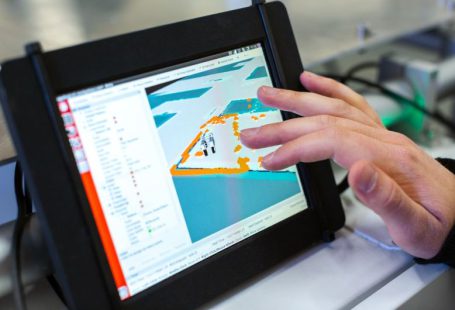The Food Industry’s Tech Transformation: the Role of Artificial Intelligence
In recent years, the food industry has undergone a significant transformation driven by technological advancements, with artificial intelligence (AI) playing a pivotal role in shaping the future of the sector. From optimizing supply chain management to enhancing customer experiences, AI has revolutionized the way food businesses operate. Let’s delve into the various ways in which AI is reshaping the food industry landscape.
AI-Powered Supply Chain Management
Efficient supply chain management is crucial for the success of any food business. AI technologies have enabled companies to streamline their supply chains by predicting demand, optimizing inventory levels, and enhancing logistics operations. By analyzing vast amounts of data in real-time, AI algorithms can identify patterns and trends, helping businesses make informed decisions to minimize waste and maximize efficiency.
Enhancing Food Safety
Food safety is a top priority for both consumers and regulatory authorities. AI solutions have been instrumental in improving food safety standards by detecting potential contaminants, pathogens, and adulterants in food products. Through the use of machine learning algorithms, food companies can quickly identify issues in the production process and take proactive measures to ensure the safety of their products.
Personalized Marketing and Customer Engagement
AI has revolutionized marketing strategies in the food industry by enabling businesses to create personalized experiences for their customers. By analyzing consumer data and preferences, AI algorithms can tailor marketing campaigns, offers, and promotions to individual customers, enhancing engagement and loyalty. Chatbots powered by AI have also become popular in the food industry, providing instant customer support and personalized recommendations.
Predictive Analytics for Menu Planning
Menu planning is a critical aspect of running a successful food business. AI-powered predictive analytics tools help restaurants and food service providers analyze customer preferences, seasonal trends, and market demands to optimize their menus. By leveraging AI algorithms, businesses can forecast which dishes are likely to be popular, adjust pricing strategies, and make data-driven decisions to attract more customers and increase profitability.
Efficient Food Production and Distribution
AI technologies have revolutionized food production and distribution processes, making them more efficient and cost-effective. Through the use of robotics and automation, food manufacturers can streamline production lines, reduce waste, and improve overall productivity. AI-powered systems also help optimize distribution networks, ensuring that food products reach their destinations in a timely manner while minimizing transportation costs.
Improving Operational Efficiency
AI has transformed the way food businesses manage their operations, from inventory management to workforce scheduling. By automating routine tasks and workflows, AI solutions enable companies to operate more efficiently, reduce human error, and allocate resources effectively. Smart kitchen technologies powered by AI have also become popular, helping chefs and kitchen staff optimize cooking processes and maintain consistent quality.
The Future of AI in the Food Industry
The integration of AI technologies in the food industry is set to continue evolving, with new applications and innovations emerging constantly. As AI becomes more sophisticated and accessible, smaller food businesses are also adopting AI solutions to stay competitive in a rapidly changing market. From farm to fork, AI is revolutionizing every aspect of the food industry, driving efficiency, improving quality, and enhancing customer experiences.
Embracing AI as a Catalyst for Growth
In conclusion, the role of artificial intelligence in the food industry cannot be understated. From optimizing supply chains to enhancing food safety, AI technologies are reshaping the way food businesses operate and interact with customers. By embracing AI as a catalyst for growth and innovation, food companies can stay ahead of the curve, drive operational efficiency, and deliver exceptional products and services in a highly competitive market landscape. The future of the food industry is undoubtedly intertwined with the transformative power of artificial intelligence.





